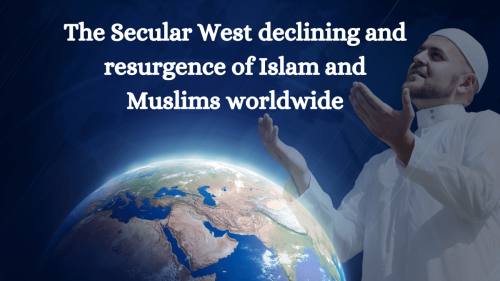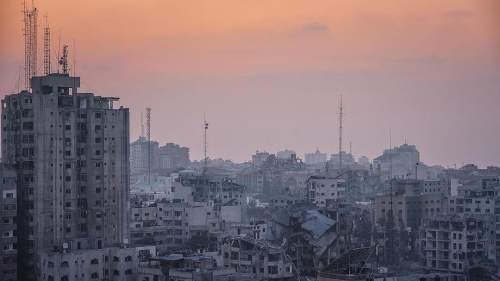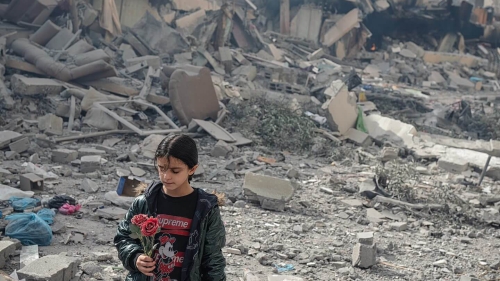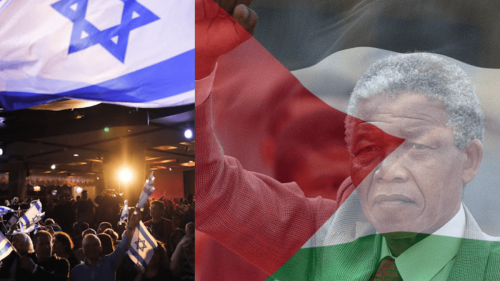The New Era of Intolerance
I am not surprised that the United Nations has declared 2001 as the International Year for Mobilization Against Racism, Racial
Discrimination, Xenophobia and Related Intolerance.
But you'd think that in this new millennium such a declaration would be unnecessary. You'd think that all types of intolerance would simply be unacceptable by everyone, everywhere, especially in the "enlightened" West. Yet reality is sadly different -- shocking, to be more accurate.
One op-ed article written not so long ago by a self-described "expert" concludes with this jarring statement:
"Whatever their differences, however, all (American) Islamists have the same ambition, which is what they call the 'Islamization of America.' By this, they mean no less than saving the U.S. through transforming it into a Moslem country. However remote the prospect, they believe time is on their side."
The writer, who heads an American study group on the Middle East, and who manages to publish many of his opinion pieces in American and Canadian, as well as overseas newspapers, is warning everyone who cares about the well-being of Western society that American Muslims are conspiring to transform their country into a Muslim state.
In another piece, published recently by a Canadian newspaper, Arabs, Muslims and Palestinians are called "animals" by a London-based, columnist who criticizes Canada for allowing them in, reasoning that "Such groups take a considerably longer time to assimilate and often remain aloof from the host culture." She also asks Canadians to treat them differently because their native "countries take a somewhat different view of life on this Earth from that of the West."
| ___________ Like any conspiracy theory, the "Islamization" idea rests upon utterly fallacious grounds: the so-called global conspiracy by Muslims. ___________ |
Make no mistake about it, the "Islamic conspiracy" theory poses a real threat to Muslims far beyond the printed word, just as perceptions of danger from Jews and Judaism shaped European history and national policies long before the actual Holocaust.
Why? because when historical dislikes and group hatreds people are carried over into prejudicial national policies, they pose their greatest threat to any democratic society.
At its least damaging, the politicization of prejudice is likely to harden and inflame existing societal tensions, leading people to define their personal and collective interests along religious, ethnic, and racial lines, and to labeling those who are "different" as political enemies.
At its extreme worst, politicized prejudice can result in the use of state powers to repress, or even eliminate, unpopular minorities (often described as "ethnic cleansing," but in reality genocide). Of all the political excesses committed by humankind, none have been as vicious as those motivated by personal hate and bigotry, when these ugly tendencies become transplanted into national policies.
In October 1999, the Roman Catholic Archbishop of Izmir (in Turkey), bluntly accused Muslims of plotting to dominate Europe and called on Pope John Paul II to convoke a special Vatican meeting to deal with the "problem," asking "How can one not see in all this a clear program of expansion and re-conquest?" The same cleric went even further in a written statement to the Synod of European Bishops: "It is a fact that, for Muslims, terms such as dialogue, justice, reciprocity, or concepts such as human rights and democracy have a different meaning than they do for us. By now, I think everyone recognizes and admits this."
And a conservative American think tank issued an editorial warning of "the Islamic danger," praising Russia for its campaign to rein in the breakaway republic of Chechnya. The article, part of which was printed in the Washington Times in November 1999, was attributed to the Free Congress Foundation which describes itself as a "culturally conservative" body.
It states: "[The] Russian army in Chechnya is fighting for us, too, and for everyone who does not want to live under the oppression of Islam. Of course, America's foreign policy establishment turns a willful blind eye to the Islamic danger. Having bombed the Christian Serbs out of their historic homeland of Kosovo, it is now denouncing Russia's counteroffensive in Chechnya. One cannot help but wonder whether the anti-Christian bias which shapes American domestic policy now carries over into foreign affairs as well."
Certain religious and political groups actually benefit from the paranoia fed by "Islamic conspiracy" theorists. These have included some Christian mission sects working among Muslims in Africa and Asia, as well as governments and political parties who try to advance their own adversarial agendas -- resulting in Russians against Chechnyans, Israelis against Palestinians, Serbs against Bosnians and Albanians, American right-wing politicians against their moderate opponents, and even some governments in Muslim countries against their own legitimate political opposition parties.
Like any conspiracy theory, the "Islamization" idea rests upon utterly fallacious grounds: the so-called global conspiracy by Muslims. Muslims in Canada are still a small minority, but their views on national and international issues are anything but unified. For example, many have strong emotional ties to Jerusalem. On national issues such as education, health care and the economy, their views range from the far right to the far left, as do those of other Canadians.
In reality, few things distinguish many Canadian Muslims from mainstream society. Like the rest of us, they grieve when they lose a loved one, and they enjoy happy times with their children. They care about things like preserving the natural environment, reducing unemployment, making their towns and cities safe from crime, or helping out the less fortunate at home and abroad.
The anti-Islamic proponents of "conspiracy" theories usually hide their bigotry behind statements like: "I have nothing against Muslims, my cousin is married to one," "I've travelled to Muslim countries and have many friends there," or, "I am not against modern Islam, but am against militant and radical Islam."
The "Islamic conspiracy" theorist also tries to link up isolated or unrelated events: the bombing of the World Trade Center in New York City (which was condemned by all American and Canadian Islamic organizations); the Sudanese civil war between the Muslim government in Khartoum and Christians and Animists in the south (even as the same parties were calling for a negotiated peace); terrorist attacks by Muslim groups in Algeria (again condemned by Muslims worldwide); the stalemated Middle East peace process (which must be based first on justice); sympathy toward suffering Muslims in Bosnia, Kosovo, Kashmir, Chechnya and in many parts of Africa and Asia.
All of the above (and more) issues are perceived as part of a grand scheme perpetrated by "Islam International," on the erroneous assumption that when Muslims abroad are inv,olved in a social or political struggle, everything these Muslims say or do must automatically have a religious basis.
The reservations, even distrust, that some Muslims abroad have expressed toward the West may we,ll be based upon experiences that do not spring solely from religious roots. Such experiences can range from colonial oppression and exploitation of natural resources, to the West's double-standard economic policies, or its historic military dominance. Just as in the West, some Muslim political groups express their views in secular terms, others in religious ones. Genuine analysts need, therefore, to examine the authentic reasons behind certain actions, events, or phenomena instead of reporting on superficial assumptions. Going beyond the easy (and often negative) assumption can lead to more meaningful social and political correlations. When similar patterns of action and/or reaction emerge here and there, for example, the careful analyst should be looking for common, even pragmatic reasons for this -- not automatically blaming everything on religion.
Bigotry and prejudice, both ugly human traits, are in regrettable abundance today. As we begin a new millennium, the last thing our
troubled world needs is a new variation on the despicable "Islamization conspiracy" theory to make our worst natures more attractive.
________________________________________________-
Prof. Mohamed Elmasry is a professor of electrical and computer engineering at the University of Waterloo and national president of the Canadian Islamic Congress.

















